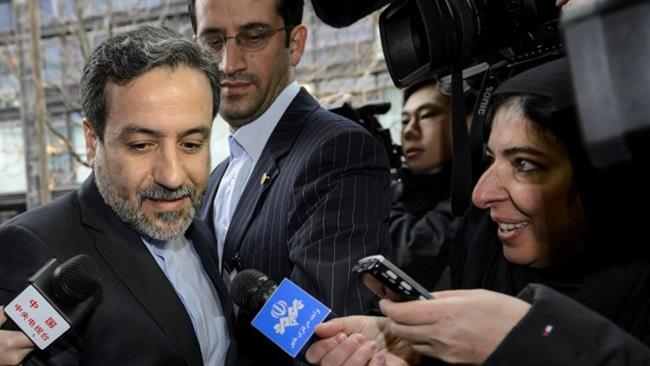Some Iranians are frustrated that economic recovery from years of sanctions is slow as banking transactions are still stricken with problems and the return of Iran’s capital from abroad is facing hurdles.
“Here, we are faced with two types of a new problem: one is returning to former conditions which will automatically take time; the other is that American obstructions have made it difficult,” Abbas Araqchi said Saturday night.
US and European businesses are reluctant to do business with Iran for fear of getting tangled in a thicket of US regulations months after sanctions were lifted on the Islamic Republic under a nuclear agreement.
Araqchi dismissed contentions that sanctions on Iran had been lifted “only on paper.”
“All the sanctions which were to be annulled have been canceled and those parts which had to stop have been halted. We are now facing a new situation,” Araqchi said.
“Sanctions were getting their legitimacy from Security Council resolutions which have been totally cancelled,” he added.
However, certain restrictions not related to Iran’s nuclear issue remain in place, Araqchi said, citing “primary sanctions” which the US has imposed on Iran over terrorism and human rights accusations.
“The overlapping of ‘primary’ and ‘secondary’ sanctions has created some problems and the Americans have not had the necessary cooperation in this regard yet,” he said.
Iran, however, has managed to remove some of the problems through pressuring the US, including those related to insurance for oil tankers, Araqchi said.
“Iran’s capabilities brought the Americans to the negotiating table and their obstructions are now normal,” he added.
The US has fined some of the largest international banks for trading for Iran. Araqchi said some of those banks had pledged not to deal with Iran, but Tehran was pressuring Washington to remove the restrictions.
“We knew that we would be facing breach of contract and malfeasance by the Americans when it came to the implementation (of the agreement),” he said.
US President Barack Obama has appeared to take further steps toward easing restrictions on Iran and allowing the country to begin trading in dollars.
Araqchi said Iran had raised its crude oil exports to 1.7 million barrels per day (bpd), but it faced challenges for returning to pre-sanctions levels when the country sold 2.5 million barrels.
“Our customers have gone and concluded deals with other countries. We have to find new clients and nobody can expect us to return to former export rates overnight,” he said.
Araqchi predicted Iran’s oil exports to hit 2.5 million bpd within a year.
As for the repatriation of Iranian assets abroad, the official put the sum above $100 billion, some of which belonged to the government while others were owned by the Central Bank and the Ministry of Petroleum or held in the form of deposits with Chinese banks.
